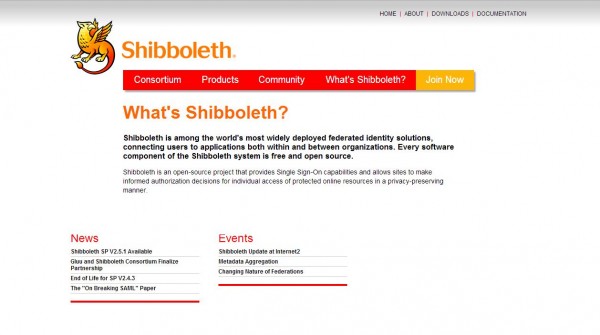Will Norris, who we’ve briefly highlighted before, is the subject of our interview today.
He’s a long time WordPress user and is a strong proponent for Open Source development. Did we mention he’s a Googler?
Congratulate Will on his commit access to WPAndroid Trunk by leaving a comment after his interview because today he’s our Word Person of Interest (WPOI):
1. Tell Us About Yourself, The More ‘Unknown’ Facts the Better!
I’m Will Norris. I’m an engineer working in Google’s Open Source Programs Office. We basically help facilitate the steady flow of open source software into and out of Google. Prior to this, I spent about three years working on the Google Buzz and Google+ APIs.
I’ve been working on open source software in various capacities pretty much my entire career. I spent several years working on Shibboleth, a big enterprise-y open source single sign-on system that’s pretty popular with universities and governments.
I then went to the opposite extreme and spent some time at a startup working on more consumer-focused solutions using OpenID. And now I’m doing open source work at Google; I can honestly say that I wouldn’t have the (amazing!) job I have today were it not for the open source projects I’ve participated in along the way.

2. How Long Have You Been Working with WordPress? When Was Your First Experience?
I think the earliest version of WordPress I remember running was 1.2, so that would have been around 2004. This was after a few years of bouncing between a homegrown system, MovableType, and then blosxom. I still have very fond memories of the simplicity of blosxom, many of the ideas of which continue in some of the modern static site generators like Jekyll.
I got into WordPress plugin development when I initially started patching, and later adopting, the OpenID plugin in 2007. That pretty quickly got rolled into the DiSo Project, which was an early effort I was involved in to build technologies to power a distributed social web.
The goal at the time was to build the plugins necessary to empower the kind of social interaction you have on a traditional social network, but where each individual participates from their own personal WordPress site. So we had WordPress plugins to manage authentication, provide extended profile information, access controls using federated identities, friend lists using federated identities based on XFN, that sort of thing.
The original goal of the project was never fully realized, though there are still remnants of it alive today, most notably the ActivityStreams format, which has seen moderate adoption.
Nowadays, my plugin work tends to be focused on Indie Web plugins, which is sort of a rethinking of some of the original DiSo ideas, but with a bigger focus on data ownership. So I’ve been building things like a personal URL shortener called hum, which encourages linking to your own content using shortlinks on a domain you control, rather than a third-party service like bit.ly.
As for core contributions, I’ve been doing a little here and there for about as long as I’ve been doing plugin development. I think my biggest contribution was probably the redesigned authentication system in WordPress 2.8 to more easily enable non-password-based authentication (things like OpenID, OAuth, Shibboleth, etc).
3. I See That You’re a Googler… How’s that Been? What is it Like Working with Google and Open Source?
Open source is a really a part of everyday life at Google. So much of Google is built on top of open source code at so many levels (the Linux kernel, gcc, WebKit, etc), and we make it very easy for Googlers to bring in whatever open source libraries that help them in their work. New packages are being added or updated literally every day.
The group I work with is also responsible for helping Googlers release open source code out to the world. This includes really big projects like Android and Chromium, down to small one-person 20% projects that you’ve never heard of. Most of the released code falls into this latter category, and one of things I’m hoping to work on this year is bringing more exposure to these projects and making it easier for people to make contributions to them.
And it’s not just about open source code that Google will directly benefit from. For the last eight years, we’ve run the Google Summer of Code which provides stipends for students to spend their summers contributing to various open source projects. I think WordPress has participated five of those years.
4. How Have You Seen WordPress Grow and Change and Where Do You Think It’s Headed?
What’s more interesting to me is what hasn’t changed. In a post titled The Web We Lost, Anil Dash reflects on how the web has changed over the last decade or so, and how the interests of individual users have, in many cases, taken a backseat to corporate interests.

For me, WordPress has always represented the web that Anil describes. You didn’t need to ask anyone’s permission, agree to any terms of service, or accept anyone’s privacy policy; you could download some free open source software, install it on a linux box running in your closet, and stake your claim on the Internet.
There have been tremendous advancements in the tools we use to communicate and share online in the last few years, and WordPress has actually done a pretty decent job keeping pace. For example, look at the new media controls added in WordPress 3.5 and the carousel and galleries provided by Jetpack; they rival even the best photo sharing experience on the web today. But most importantly, they’ve done this without compromising any of the ideals or freedoms that were part of the “web we lost” that Anil talks about.
If WordPress can continue to keep pace with the best user experiences on the web, and do it while keeping the user in full control of their data, then I think we all have a lot to look forward to.

5. Is Google Interested in WordPress specifically? Any Neat Things We Can Expect in 2013?
I think it’s safe to say that Google and WordPress share a deep interest in a healthy and growing web, and one that enables an open and free exchange of ideas. From that perspective, I think Google is interested in anything that will help further those goals.
In fact, just this week Vic Gundotra (head of Google+) shared a WordPress plugin that pulls your Google+ posts into WordPress.
6. You Recently Got More Access to WP Android – What Motivated You to Spend Time Doing That?
While WordPress had done a good job lately of keeping up on the web front, they’ve lagged behind a little on mobile, compared to the industry as a whole I mean. I’d say that the vast majority of the innovation when it comes to user experience that’s happening these days is on mobile.
There have been some really incredible apps even in just the last few months for things like Google+, App.Net (Robin for Android is great), Twitter / Vine, etc. I have such great apps at my disposal for pushing content into other people’s services, so why isn’t the experience just as good (if not better) when publishing to my own website… to my own home on the web?
I am by no means a designer and I’m not a rockstar engineer, but Anil Dash wrote a follow-up post to The Web We Lost entitled Rebuilding The Web We Lost, looking at what it would take to get back to the web we loved so much. For me, that means spending less time talking about the Indie Web, and more time building and living in the Indie Web, and that means making the WordPress Android app as great of an experience as any of the apps I mentioned above.
I think WordPress and Android are actually a great match, as they both have really common goals and focuses. Plus, given how much web usage is now happening from mobile devices, coupled with just how popular Android is, I couldn’t think of a more exciting WordPress project to be contributing to right now.
7. What are One or Two Tips for Those That are Getting into WordPress?
For developers, I’d probably recommend starting with plugins before you jump into hacking on core. That allows you to ease into development in general, and forces you to really learn about WordPress’ extensibility model. Even WordPress core makes extensive use of actions and filters, but learning about them from a plugin’s perspective tends to be a bit easier.
For users, step number one is to buy a domain. It’s not hard and it’s not expensive, and it doesn’t mean you have to go buy a web hosting account and install software on a server… you can still host your blog on WordPress.com. But by using your own domain, you ensure that you are always in control of your content.
If you decide one day to move off of WordPress.com onto a web hosting account, or even to a different platform entirely, you ensure that not only does your content go with you, but that all of the existing links to your content will continue to function.


2 Comments